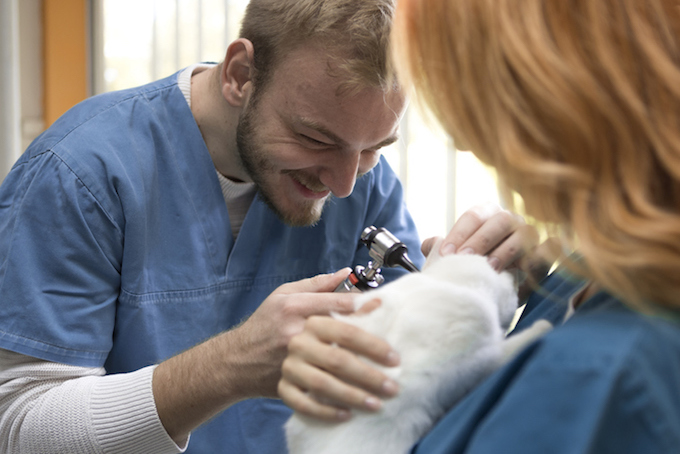Ear cancer in cats happens when tumors appear in the outer and external ear canals. The condition can sometimes be caused by exposure to the sun.
Technically, the condition is also known as auricular squamous cell carcinoma.
Generally, early treatment is key to recovering from the condition.
If you see the signs of ear cancer in your cat, then get to a veterinarian for a proper diagnosis and treatment.
Here’s what you should know about the symptoms, causes, and treatments for the condition.
Symptoms of Ear Cancer in Cats
The condition produces a range of symptoms. Specifically, most of the symptoms affect the ear. For example, some of the most common symptoms include:
- Crusty sores on the ear
- Ulcers that bleed
- Head shaking
- Redness of the ear
- Deafness
- Discharge from the ear
- Tips of ears becoming malformed
Causes of Ear Cancer in Cats

The cause of the condition is usually exposure to the sun. Additionally, white cats and cats with white ears seem to be affected by the condition more than other cats.
Treatments for Ear Cancer in Cats
Firstly, your vet will ask about your cat’s symptoms. Secondly, your vet will ask about your cat’s medical history. This will include whether you’ve ever noticed sores on your cat’s body.
Thirdly, a full physical examination will be carried out. Special attention will be paid to looking for sores on the body. Blood and urine tests will also be taken.
In general, a biopsy of any ulcers will be taken. This can be analyzed and confirm the condition.
Treatment will depend on the amount of ulcers and the size of any tumors. In some cases, they can be frozen off. This process is called cryosurgery.
In more severe cases, part of the ear might need to be surgically removed. Chemotherapy can also be an option — although the procedure is not as effective as surgery.
Ultimately, early detection is key. Additionally, limit your cat’s time in the sun. Also, use a sunscreen on your cat if they spend a lot of time in the sun or have white fur. Your vet can help recommend a sunscreen that’s safe for your cat.
Have you ever cared for a cat who suffered from this condition? How did your vet help your cat recover? Let us know in the comments section below.









